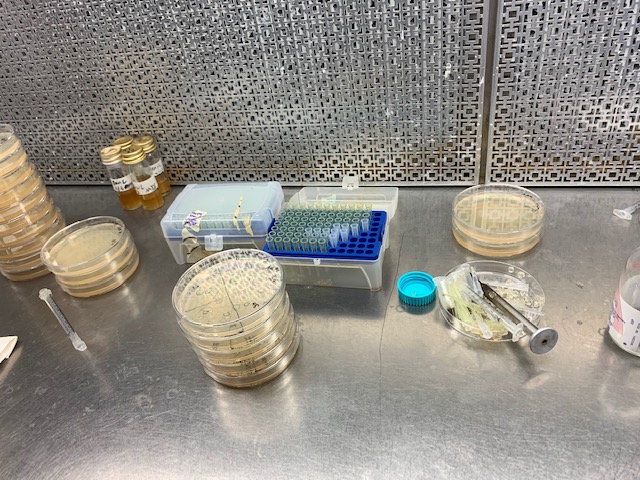
The marine environment has evolved a balanced ecosystem of organisms and the bacteria to decompose them.
Sea-weed and sea-weed derived bio-plastics require bacteria to help decomposition. We identified the possible problems with biodegradability away from a marine environment. For sea-weed bio-plastic decomposition in all environments, Prof Chris Franco suggested polymers can be seeded with the bacteria to facilitate this. A variety of applications was discussed.
Conversely, sea-weed extracts were tested for innate antibacterial activity. If sea-weed bio-plastics are to be used for medical applications innate anti-bacterial activity would be useful.
I was able to assist, hands on, with the toxicity testing bacterial assay as I have used it to create earlier artworks focusing on the movement of bacteria across human, animal and environmental terrains. Within the broader context of my work, tracking the movements of anthropocentric activity is a recurring theme. Not only are we concerned with environmental impact of plastics pollution. Making sentient the movements of microbes is currently highly pertinent in a pandemic stricken global society.